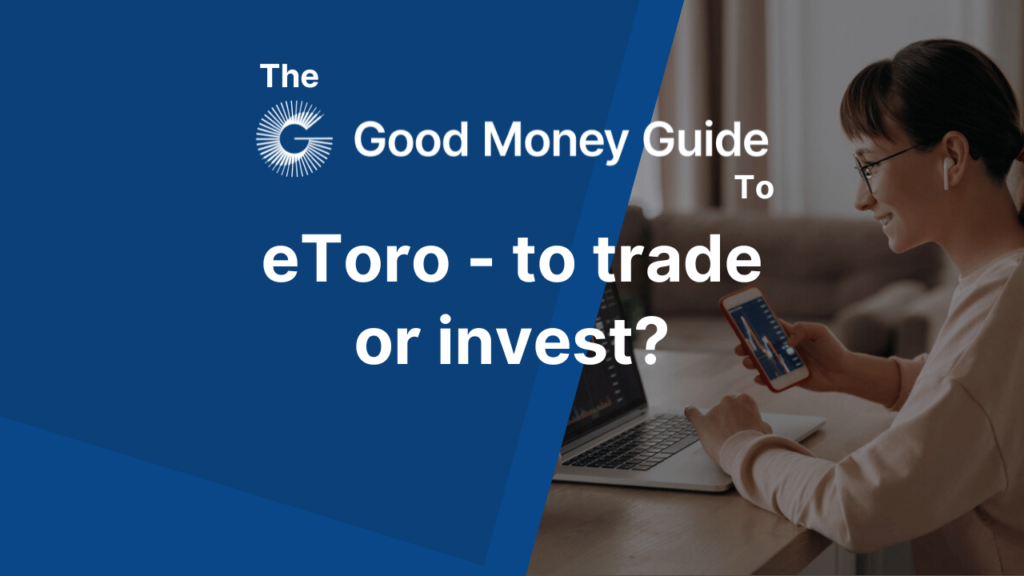


Ever since I sat in The Angle pub, next to the Silicone Roundabout opposite where I was a stockbroker (at Walker Cripps Weddle Beck) 15 years ago disc...
Quickly compare vetted accounts to see which providers are most appropriate for you.
Get a better understanding of how the markets work with our easy to ready "how-to" guides.
See what customers and industry experts think of providers with our reviews and rankings
DISCLAIMER: The information contained in this website is for informational purposes only and does not constitute financial advice. The material does not contain (and should not be construed as containing) investment advice or an investment recommendation, or, an offer of or solicitation for, a transaction in any financial instrument.
AFFILIATE NOTICE: Some of the links on Good Money Guide are affiliate links. This means that when you click through from us to a provider and open an account we may receive a payment. See about us for more information on how we make money and how we test providers.
RISK WARNING: ALL INVESTING INVOLVES RISK. Investing, Derivatives, Spread betting and CFD trading carry a high level of risk to your capital and can result in losses that exceed your initial deposit. Between 68-89% of retail investor accounts lose money when trading CFDs and spread bets. You should consider whether you understand how CFDs work and whether you can afford to take the high risk of losing your money. Capital at risk.
All content copyright Good Money Guide. GoodMoneyGuide.com is owned and operated by RJBCO Ltd. Registered in England & Wales, Company Number: 07134687. Registered office at 4 Old Park Lane, Mayfair, London, England, W1K 1QW. VAT registration number: 324242143. Data protection registration number: ZA468875